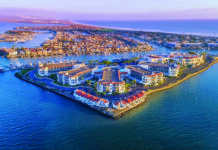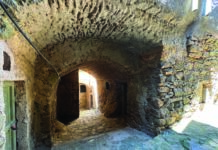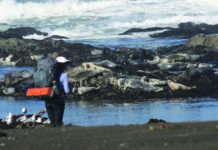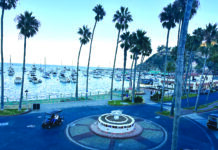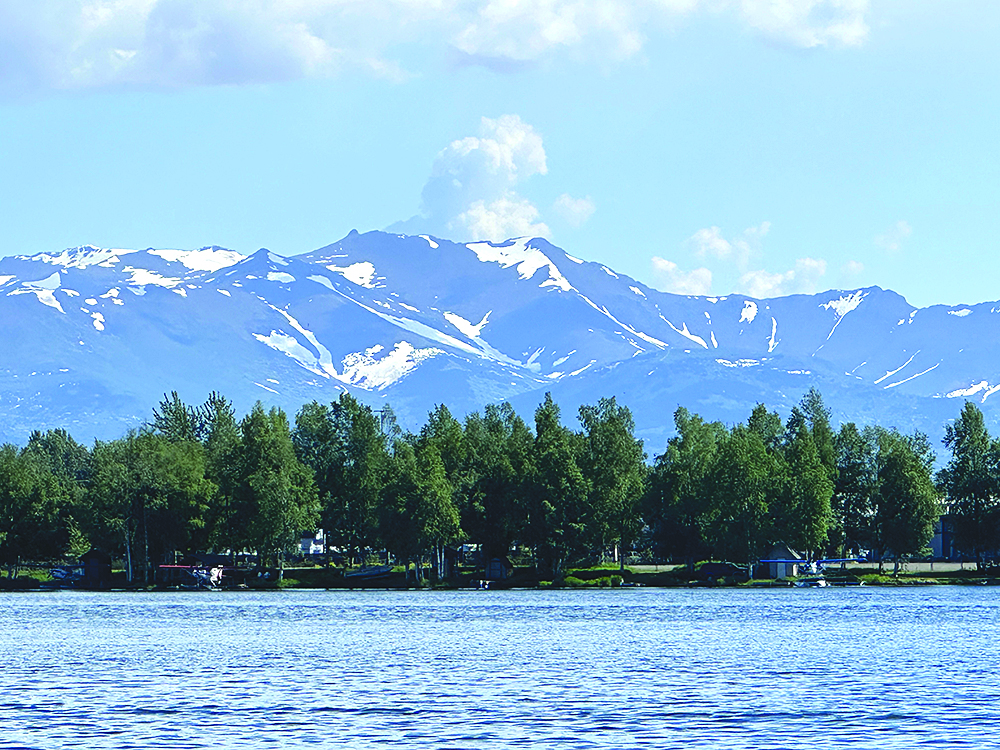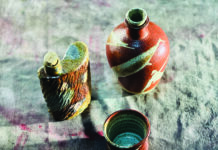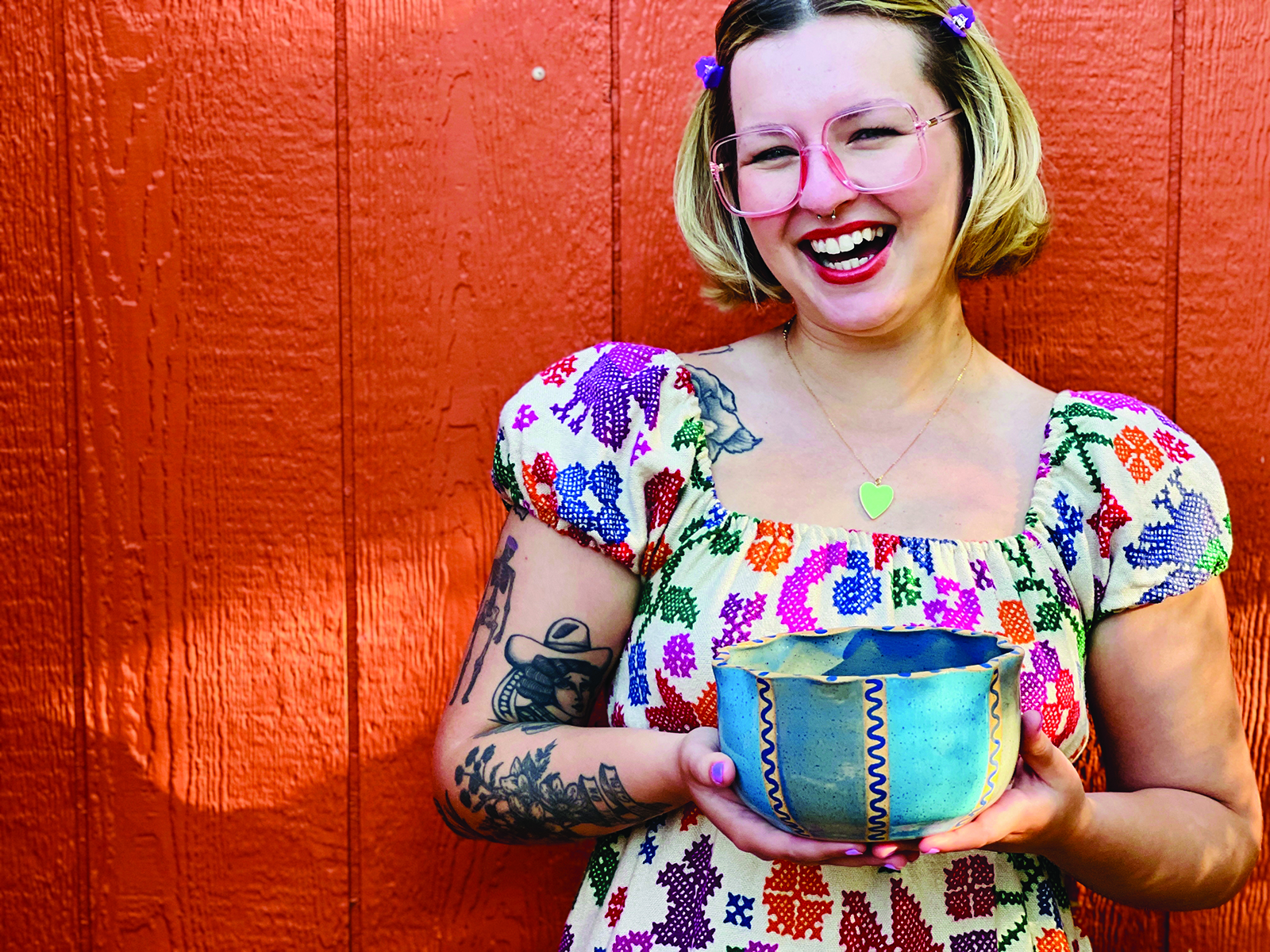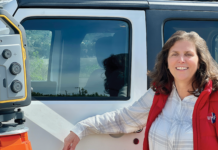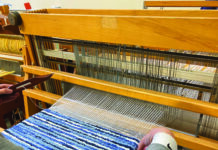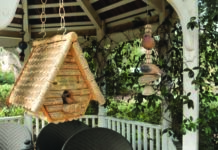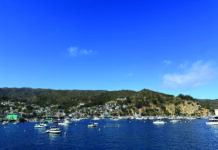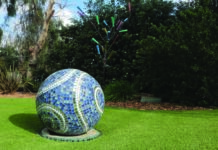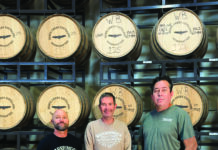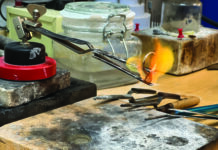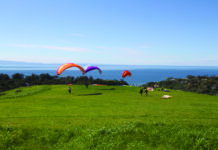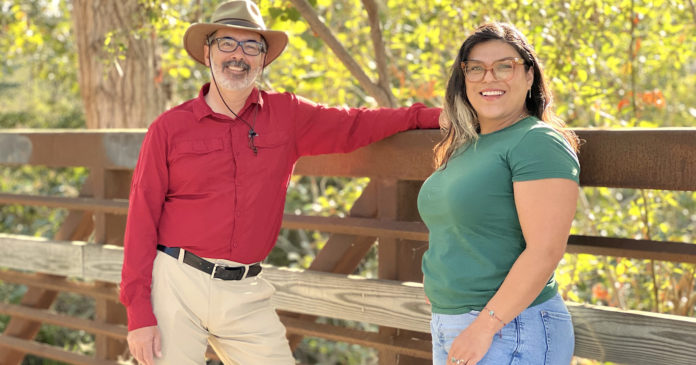
Friends of the Santa Clara River provide education and restoration for a precious ecosystem.
By Tim Pompey | Photos by Viktor Budnik
Where is the Santa Clara River?
Your answer to this question might depend on where in Ventura County or Los Angeles County you live and how often you might encounter the river, whether driving across it on the 101 freeway, watching it snake along Highway 126 or following its tidal march at the Harbor Boulevard bridge in Ventura.
The river has a long and varied geography, starting on the north slope of the San Gabriel Mountains above Highway 14 and Acton and emptying into the ocean just south of Spinnaker Drive near the Ventura Harbor.
Part of it even flows underground. You won’t see the actual river until the area gets heavy rains. Occasionally, like in 1969, it will spill its banks and widely overflow. Then it will shrink back into its usual quiet existence.
The influence of the Santa Clara River in Ventura County is immense, and its survival is equally important to our environment and economy.
“The Santa Clara River is one of the last rivers in Southern California that is still in a mostly natural condition,” said Ron Bottorff, the founder of Friends of the Santa Clara River (FSCR). “It has a watershed area of about 1,600 square miles, roughly the size of the state of Delaware.”
It’s essential to local agriculture. It’s also a critical home to regional habitat — birds, fish and, in times past, even elk and beaver. And for some lucky Ventura residents, it provides a wonderful outlet for relaxing outdoor walks.
A FRIENDLY START
Someone who did notice is the aforementioned Bottorff from Newbury Park.
Bottorff is a retired aeronautical engineer and a past activist with the Sierra Club. In 1993, his interest was piqued after reading an article in the paper about the formation of a steering group to study the river.
“I got involved when I learned that the state Fish and Wildlife Service was starting up a plan for the Santa Clara River called the Santa Clara River Enhancement and Management Plan,” he recalled. “ I discovered that the steering committee of about 30 individuals didn’t have a single environmental representative.”
Bottorff was determined to change that. He talked and tussled with a member of the Ventura County Board of Supervisors. As a result, he founded FSCR and took his place on the steering committee. The committee ran for 10 years, finished its report, and retired. But FSCR is still ongoing and highly active.
Despite the usual government bureaucracy, Bottorff was happy he participated. “It was a fantastic way to learn about the river and have some effect on the outcome,” he concluded.
RAISING A PROFILE
For Jim Danza, a geography instructor at Oxnard College and the current chair of FSCR, the work to support and enhance the river’s profile remains essential.
Danza became interested in river life when he was in college. He eventually became active with the Friends of the Los Angeles River, where he served as chair of their advisory board. Now living near the Santa Clara River, he has transferred his previous experience to FSCR, where he has served as board chair since 2017.
His primary goals are to provide a more extensive profile for the Santa Clara River and expand the group’s land restoration and education outreach to local schools and colleges. For Danza, the Santa Clara River’s importance can’t be overstated.
“Many people live along the Santa Clara River,” he explained. “Most of the water from the county comes from this river. This is the river that feeds the groundwater table and its surrounding cities. It’s the river that provides water to agriculture and industry.”
Diana Rodriguez, secretary to the board of FSCR, learned about the Santa Clara River while attending Oxnard College.
“Honestly,” she admitted, “I lived near the river for years and did not realize there was a river here.”
“And that’s our challenge,” Danza added, “and one good reason we want to put in bike trails, because we envision exhibits to teach people about the river.”
RESTORATION AND EDUCATION
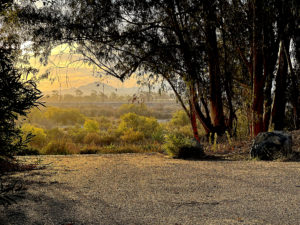
True to its mission, FSCR is expanding its educational and restoration projects.
With the help of the California Coastal Conservancy, FSCR owns property south of Santa Paula called the Hedrick Ranch Nature Area, a 220-acre spread that FSCR continues to rehabilitate. Holly Wright, FSCR Stewardship Coordinator, said that the property also provides educational tools for local students in Santa Paula and from Oxnard College.
Another opportunity for Piru, Fillmore and Santa Paula students to dive deep into FSCR’s work with habitat restoration is near the Fillmore Fish Hatchery.
“There’s a trail at the Fillmore Fish Hatchery based on a few grants to establish an interpretive center and a botanical garden along a restored trail,” said Wright. “It’s very much community-based in terms of our volunteers who help. While that grant money ran out, volunteers and students kept it running for four years. It ran on pure love from the community. We managed to keep it going until the Ventura County Resources District was able to win a state grant to continue the dream to create an outdoor classroom.”
Finally, through a grant from the California Coastal Conservancy several years ago, FSCR has taken many students to the river’s estuary through the Explore the Coast Program.
“We created a program where kindergarten through ninth graders would go to the Ventura Wastewater settling ponds and do bird walks,” explained Wright. “Then the kids would go for a walk along the surrounding estuary. It’s an incredible view of the water and a wonderful place for kids to see the wildlife.”
Rodriguez views the Explore the Coast program as a chance to allow students from the El Rio School District to integrate education with a day at the beach. “We do tours for kids out there. We take them with binoculars. We teach them everything from the types of native plants to nesting birds and other animals. They get so excited when they go out there. Some kids have never been to the beach. We give them lessons about the environment, climate change, and what they can do to contribute.”
Explore the Coast has so far served more than 1,000, and the program was recently renewed for another three years.
Overall, Wright thinks it’s crucial to integrate local environmental education with a regular school curriculum: “We’ve created a bridge between the school, scientific research agencies, and other conservation folks.”
CREATING PATHS FORWARD
Danza dreams of a walkway from Fillmore, Santa Paula and Ventura all the way to the ocean. It’s called the Santa Paula Branch Line Trail, and would follow the tracks of the former Fillmore & Western Railway.
“It’s been supported and planned by the county,” he said. “Recently, the county supervisors voted to get grants to start the trail.”
He would also like to see walkways on both sides of the river. Currently, a walking path exists in Ventura. On the Oxnard side, he’s hopeful to eventually get a trail that travels all the way to the beach.
And he adds, “We also would like to build the loop trail in East Ventura and Oxnard to include both sides of the river. The Ventura part is done. In Oxnard, it would go from Highway 126 to the 101 freeway. We received a grant from the National Park Service to do a plan for that.”
Board members are looking for new volunteers to help push these plans forward. To encourage that, they are hosting volunteer days to give people a chance to get acquainted with FSCR.
“We’re hosting our volunteer days now at both the Hedrick Ranch Nature Area and the Fillmore Fish Hatchery trail,” said Rodriguez. “An essential part is just bringing the community out to see the benefit of being outdoors.”
The problem, as it stands, is the low profile of the river itself. Danza emphasized that people need to realize a large river flows both above and below ground right through the heart of Ventura County. But Danza admitted that people need places to visit to connect them to the river.
“We need more places for people to go,” he reiterated. “I teach geography at Oxnard College. I want to bring my students to the river. My only options right now are to go to the beach or to go to other private organizations and ask for permission to actually go in the river.”
He hopes in the next decade or so, that changes.
For now, FSCR works to make this vision possible. It might be slow growth, but that’s the way nature works. Steadily, sometimes in out-of-the-way places, until people suddenly start to notice that there’s a river out there. A wide river. Take a walk. Get in your car. Visit FSCR’s website to discover access points. Trust me. The river is there. Go find it!
Friends of the Santa Clara River
P.O. Box 7713, Ventura
contact@fscr.org
fscr.org


